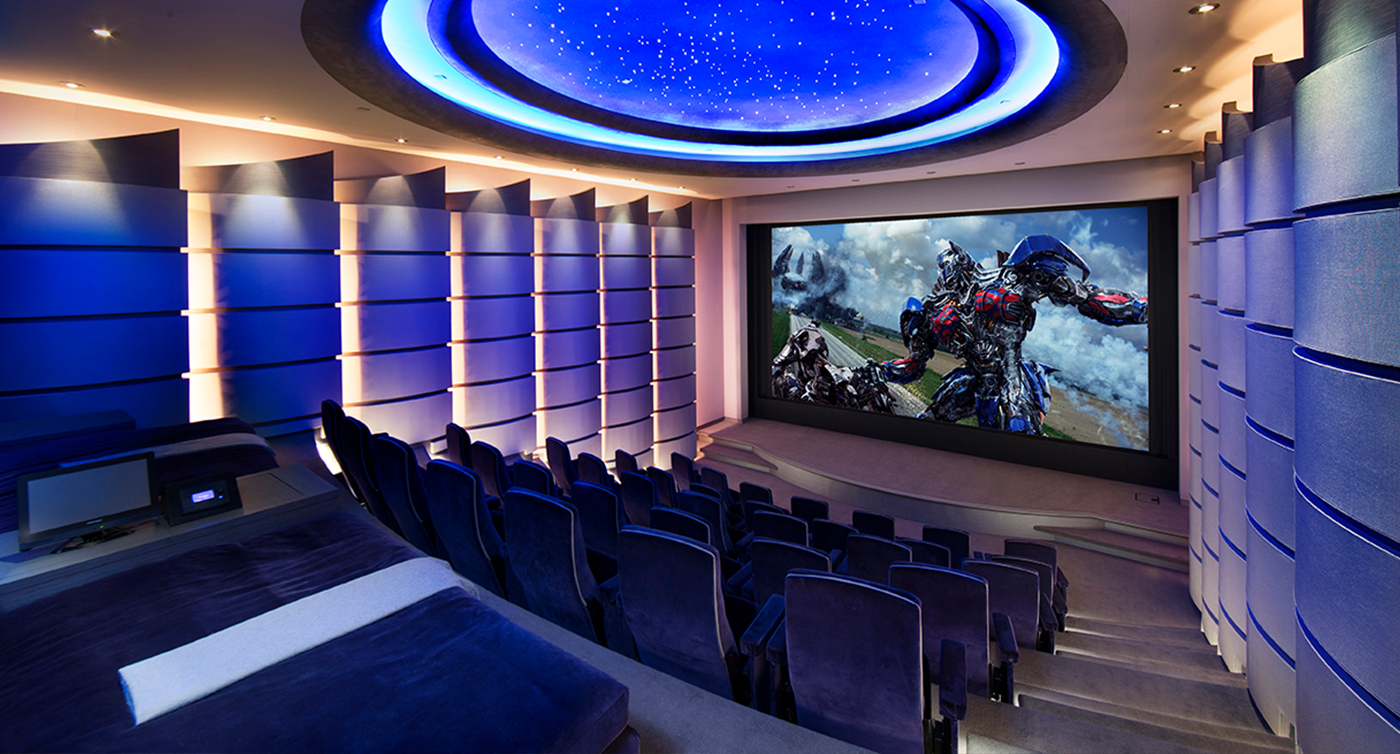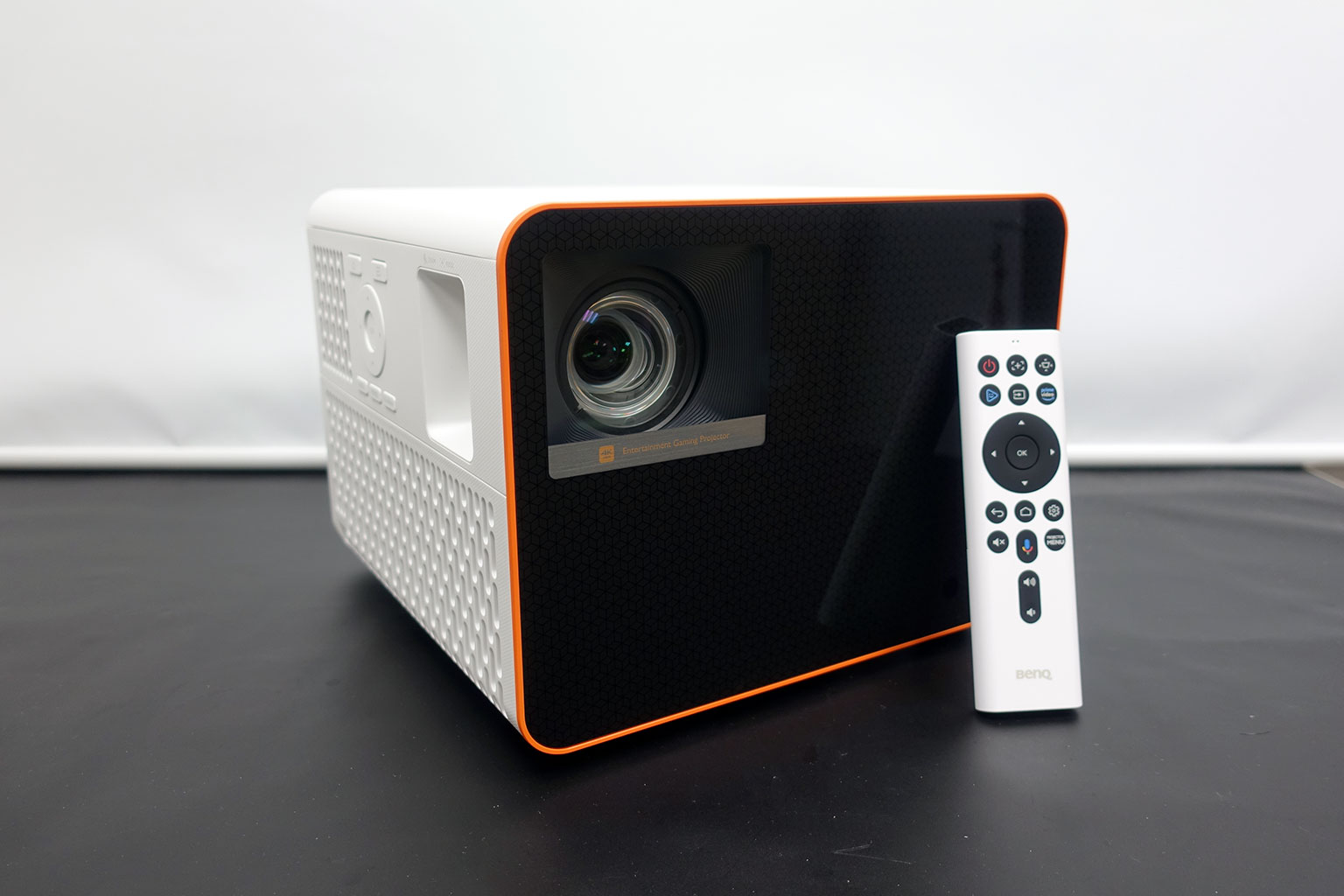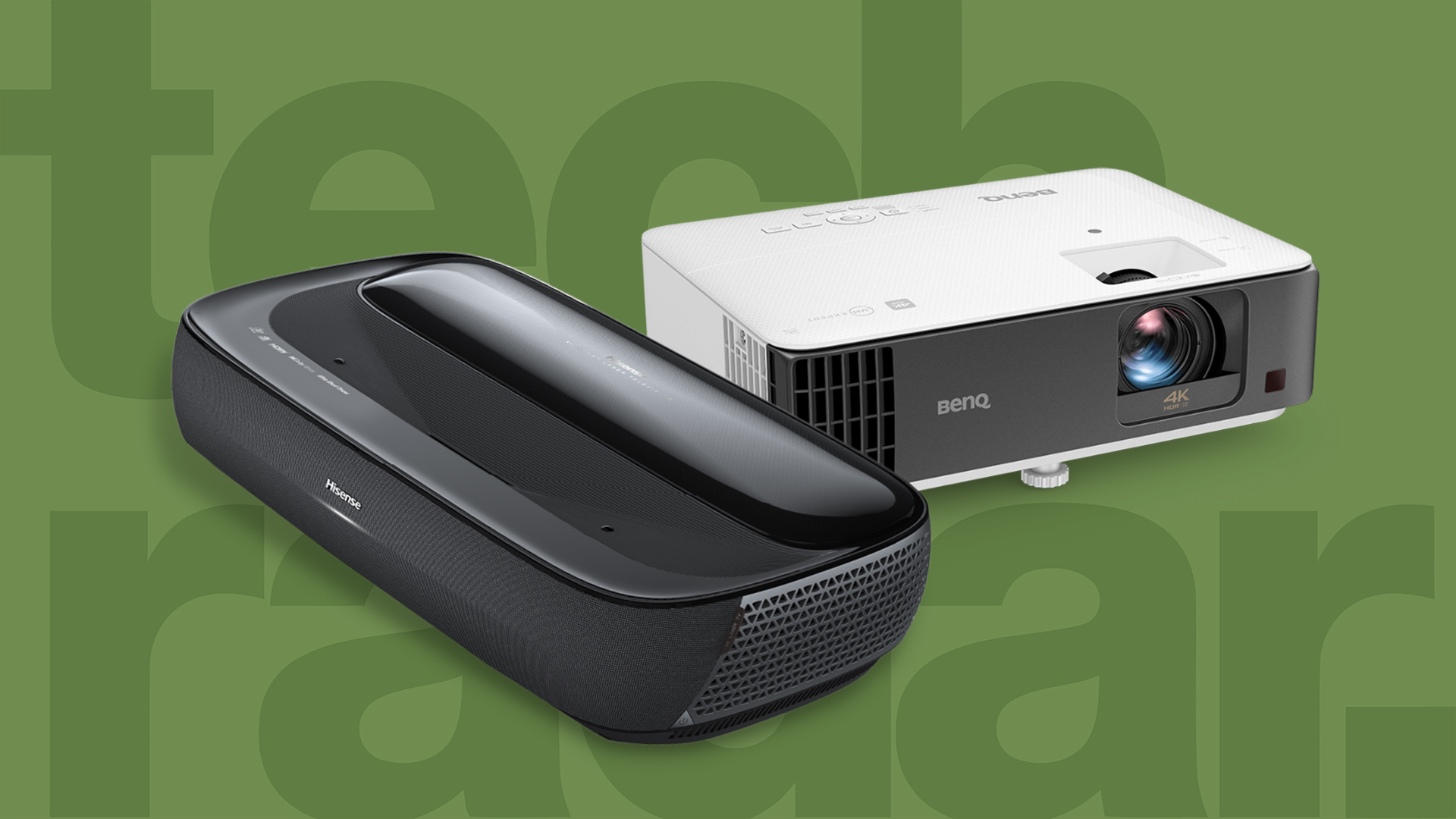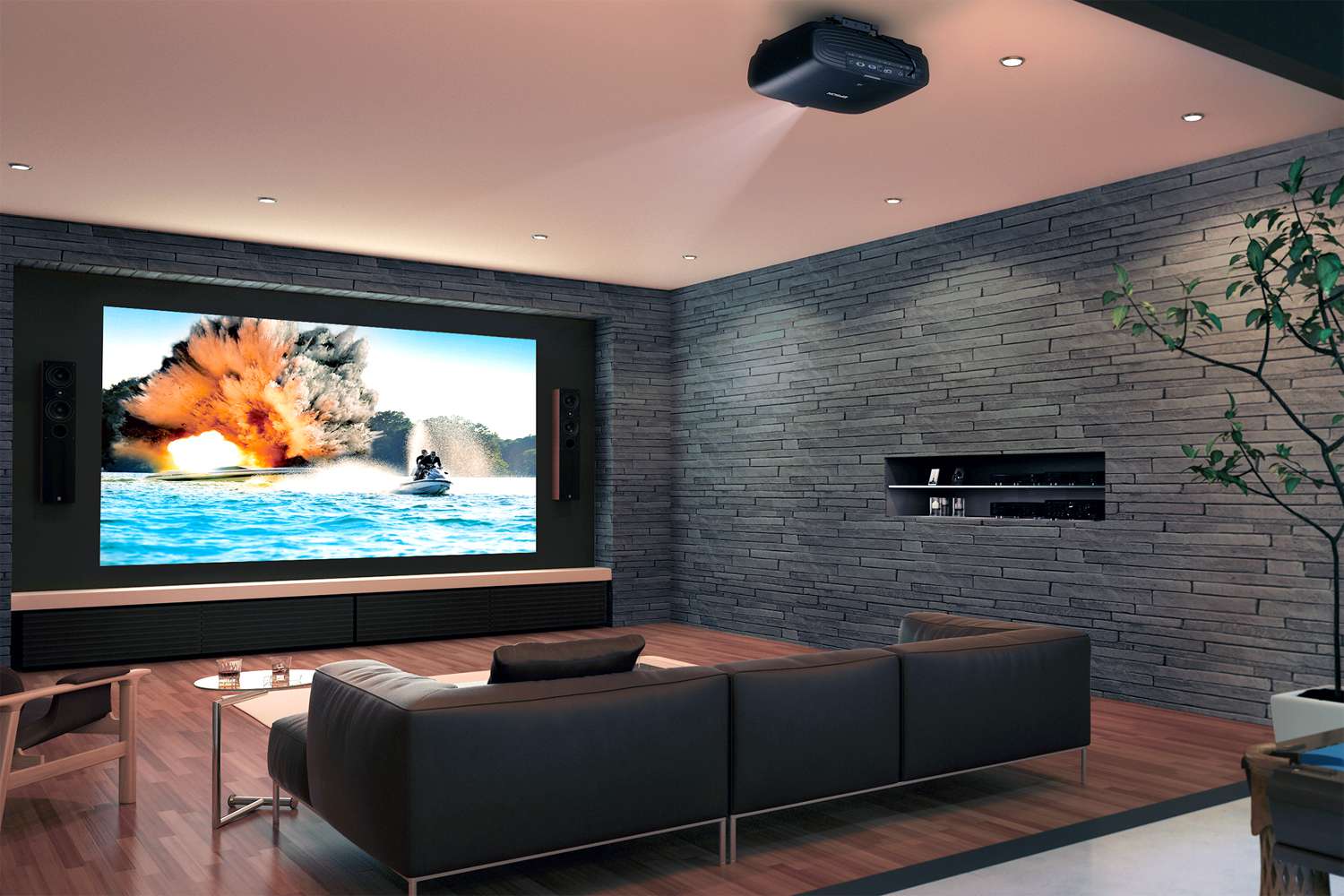Introduction
Welcome to the world of 4K projectors! In this digital age of high-definition content, the demand for exceptional visual experiences has never been higher. Whether it’s watching movies with stunning clarity or delivering impactful presentations, having a projector that supports 4K resolution can take your viewing and presentation experiences to a whole new level.
But what does it mean when a projector is described as supporting 4K? And why should you consider investing in a 4K projector? In this article, we will delve into the world of 4K resolution and explore the benefits and limitations of using a 4K projector.
4K resolution refers to a display resolution that offers four times the number of pixels compared to traditional Full HD resolution. It boasts a resolution of 3840 x 2160 pixels, providing incredible detail and sharpness that brings images and videos to life. This level of visual fidelity is particularly noticeable on larger screens, allowing viewers to experience every little detail with exceptional clarity.
When it comes to choosing a 4K projector, there are several factors to consider. One crucial aspect is the projector’s native resolution. A true 4K projector will have a native resolution of 3840 x 2160 pixels, ensuring that it delivers the highest level of detail and sharpness. However, some projectors may use pixel-shifting technology to simulate a 4K resolution, which can still offer impressive visuals but may not match the same level of clarity as a native 4K projector.
Another critical consideration is the brightness and contrast ratio of the projector. To fully appreciate the vibrant colors and rich details of 4K content, a projector with sufficient brightness and a high contrast ratio is essential. This will ensure that the images projected on the screen maintain their depth and realism, even in well-lit environments.
One of the significant benefits of using a 4K projector is the level of immersion it provides. Whether you’re watching a movie, gaming, or giving a presentation, the highly detailed visuals make you feel like you’re part of the action. Every color, texture, and movement is rendered with meticulous precision, creating a captivating viewing experience that draws you in.
Furthermore, a 4K projector enables you to take full advantage of the growing library of 4K content available today. Streaming services, Blu-ray discs, and even video games are embracing the 4K revolution, providing an extensive selection of stunningly detailed content. With a 4K projector, you can enjoy these immersive experiences in the comfort of your home or workplace.
However, it’s important to acknowledge the limitations of using a 4K projector. The first consideration is the availability of native 4K content. While the popularity of 4K content is on the rise, it may still be limited compared to Full HD content. It’s essential to ensure that you have access to a wide range of 4K content to fully utilize the capabilities of your 4K projector.
Additionally, the price of 4K projectors can be higher compared to their Full HD counterparts. The higher resolution screen and advanced technology required to deliver 4K visuals contribute to the increased cost. However, as technology advances and becomes more widespread, the prices of 4K projectors are expected to become more affordable in the future.
In the next sections, we will explore some popular 4K projectors in the market, highlighting their features, benefits, and limitations. So, if you’re ready to experience the incredible visual quality of 4K resolution, let’s dive into the world of 4K projectors!
Understanding 4K Resolution
Before delving into the world of 4K projectors, it’s important to have a clear understanding of what 4K resolution actually means. Quite simply, 4K resolution refers to a display resolution that offers four times the number of pixels compared to traditional Full HD resolution.
Specifically, a 4K resolution has a total of 3840 x 2160 pixels, resulting in a whopping 8.3 million pixels on the screen. This high pixel density allows for exceptional detail and sharpness, making images and videos appear incredibly lifelike.
When it comes to visual clarity, the difference between Full HD and 4K is quite noticeable, especially on larger screens. The increased pixel count means that more information can be displayed, resulting in finer details, smoother contours, and crisper edges.
Imagine watching a nature documentary on a 4K projector – you’ll be able to see individual blades of grass, the intricate patterns on a butterfly’s wings, and the subtle texture of tree bark. It creates a truly immersive experience, bringing you closer to the action and allowing you to appreciate every tiny detail.
While 4K resolution is most commonly associated with televisions, it has now made its way into projectors. A 4K projector can provide the same level of pixel density and visual fidelity as a 4K TV, allowing you to enjoy stunning visuals on a much larger screen.
It’s worth noting that not all 4K projectors are created equal. Some projectors may use pixel-shifting technology, also known as “faux” or “enhanced” 4K, to simulate a 4K resolution. These projectors display a Full HD image but use pixel-shifting techniques to rapidly shift the pixels, effectively doubling the resolution. While the resulting image can still be impressive, it may not match the same level of clarity and detail as a native 4K projector.
Native 4K projectors, on the other hand, have a true 4K resolution of 3840 x 2160 pixels. They can display each individual pixel of a 4K image, ensuring the highest level of detail and sharpness. If you’re looking for the ultimate 4K experience, a native 4K projector is the way to go.
So, why should you consider investing in a 4K projector? The answer lies in the incredible level of immersion and detail it provides. Whether you’re watching your favorite movies, gaming, or delivering presentations, a 4K projector can transform your viewing and presentation experiences, elevating them to a whole new level of realism and visual quality.
Now that we have an understanding of 4K resolution and its benefits, let’s explore the features and considerations when choosing a 4K projector in the next section.
What to Look for in a 4K Projector
When it comes to choosing a 4K projector, there are several key factors to consider. These factors will ensure that you select a projector that meets your specific requirements and delivers the best possible visual experience. Let’s explore the essential features and considerations when shopping for a 4K projector.
1. Native 4K Resolution: A crucial aspect to look for in a 4K projector is whether it has a native 4K resolution of 3840 x 2160 pixels. A native 4K projector will provide the highest level of detail and clarity, allowing you to fully appreciate the benefits of 4K resolution. Be aware that some projectors use pixel-shifting technology to simulate 4K, which may not offer the same level of visual fidelity.
2. Brightness and Contrast Ratio: To ensure optimal image quality, it’s essential to consider the brightness and contrast ratio of the projector. A 4K projector with sufficient brightness will deliver vivid colors and vibrant visuals even in well-lit environments. A high contrast ratio will enhance the depth and richness of the colors, providing a more immersive viewing experience.
3. HDR Support: High Dynamic Range (HDR) is a technology that enhances the contrast and colors on the screen, resulting in a more lifelike and dynamic image. Look for a 4K projector that supports HDR content, as it will greatly enhance your viewing experience, especially for movies and games that are mastered in HDR.
4. Connectivity Options: Consider the connectivity options available on the projector. Look for HDMI ports that support the latest HDMI standards, as this ensures compatibility with a wide range of devices, including Blu-ray players, game consoles, and streaming devices. USB ports and wireless connectivity options are also beneficial for easy access to media files and streaming content.
5. Throw Distance and Lens Shift: The throw distance and lens shift capabilities of a projector are essential considerations, especially if you have specific requirements for room placement. The throw distance determines how far the projector needs to be placed from the screen to achieve the desired image size, while lens shift allows you to adjust the image vertically or horizontally without moving the projector physically.
6. Availability of 4K Content: As with any display technology, the availability of 4K content is crucial. Ensure that you have access to a wide range of 4K movies, TV shows, and streaming services to take full advantage of your 4K projector. Streaming devices, Blu-ray players, and gaming consoles that support 4K content are also worth considering.
7. Budget Considerations: Last but not least, consider your budget when selecting a 4K projector. Prices can vary significantly based on the brand, features, and performance of the projector. Determine your budget range and look for a projector that offers the best combination of features and value within your budget.
By considering these factors, you can choose a 4K projector that meets your specific needs and provides an exceptional visual experience. Keep in mind that everyone’s preferences and requirements may differ, so it’s important to prioritize the features that matter most to you before making a final decision.
Now that we have explored what to look for in a 4K projector, let’s move on to the next section to discover the benefits of using a 4K projector.
Benefits of Using a 4K Projector
Using a 4K projector offers numerous benefits that enhance your viewing and presentation experiences. Whether you’re watching movies, gaming, or delivering presentations, a 4K projector can take your visual content to new heights. Let’s explore the advantages of using a 4K projector.
1. Exceptional Visual Clarity: The most prominent benefit of a 4K projector is the exceptional visual clarity it provides. With a resolution of 3840 x 2160 pixels, a 4K projector delivers four times the detail compared to Full HD, resulting in sharper images, finer details, and smoother edges. This increased level of clarity allows you to fully appreciate the nuances and intricacies of your favorite movies, games, and presentations.
2. Immersive Viewing Experience: A 4K projector offers an immersive viewing experience that draws you into the content. The lifelike visuals and high pixel density make you feel like you’re part of the action, whether you’re watching an intense movie or playing the latest video games. You’ll be captivated by the vibrant colors, stunning textures, and realistic motion, creating a truly immersive experience that heightens your entertainment or presentation impact.
3. Larger Screen Size: One advantage of a projector over a traditional TV is the ability to display content on a larger screen. A 4K projector allows you to enjoy the benefits of high-resolution visuals on a bigger canvas, providing a cinematic experience in the comfort of your home or office. With a larger screen, the increased detail and sharpness become even more apparent, transforming your viewing or presentation into a grand spectacle.
4. Compatibility with 4K Content: As technology advances, the availability of 4K content continues to grow. Streaming services, Blu-ray discs, and video game developers are embracing the 4K revolution, offering an extensive selection of content with stunning visuals. A 4K projector allows you to enjoy this vast library of 4K content, ensuring that you make the most of your investment and experience content at its best.
5. Future-Proof Investment: Investing in a 4K projector is a future-proof decision. As 4K becomes more prevalent and the standard for visual content, having a 4K projector ensures that you’re prepared for the future. By investing in a high-quality 4K projector, you can enjoy the latest technology and advancements for years to come without the need for frequent upgrades.
6. Versatile Applications: A 4K projector is not limited to just home entertainment. It can be a valuable tool for business presentations, meetings, and conferences. With its exceptional clarity and large screen size, a 4K projector can captivate your audience and make your presentations more impactful. Whether you’re showcasing detailed graphics, data visualizations, or high-resolution videos, a 4K projector will enhance the professionalism and effectiveness of your presentations.
7. Improved Color and Contrast: Many 4K projectors offer High Dynamic Range (HDR) support, which enhances the color and contrast of the displayed content. HDR technology brings out the vibrant colors, deeper blacks, and brighter highlights, resulting in a more lifelike and dynamic image. Whether you’re watching a movie with breathtaking cinematography or delivering a presentation with visually striking visuals, HDR support on a 4K projector elevates the visual experience to a whole new level.
In summary, using a 4K projector provides exceptional visual clarity, an immersive viewing experience, compatibility with 4K content, and future-proof investment. Its versatile applications and improved color and contrast capabilities further enhance the viewing and presentation experiences. If you’re looking to elevate your entertainment or presentation setup, a 4K projector is a worthwhile investment.
Now, let’s explore some important limitations to consider when using a 4K projector in the next section.
Limitations to Consider When Using a 4K Projector
While 4K projectors offer many benefits, it’s important to consider their limitations before making a purchase. Understanding these limitations will help you make an informed decision and manage your expectations. Let’s explore some of the key limitations to consider when using a 4K projector.
1. Limited Native 4K Content: Despite the increasing popularity of 4K content, the availability of native 4K movies, TV shows, and streaming services is still somewhat limited compared to Full HD content. It’s crucial to ensure that you have access to a wide range of 4K content to fully utilize the capabilities of your 4K projector. While upscaling technology can enhance the viewing experience of non-4K content, the true potential of a 4K projector is best realized with native 4K content.
2. Higher Cost: 4K projectors tend to be more expensive than their Full HD counterparts. The higher resolution display and advanced technology required to deliver 4K visuals contribute to the increased cost. If you’re on a limited budget, a 4K projector may not be the most cost-effective option. However, as technology advances and becomes more widespread, the prices of 4K projectors are expected to become more affordable in the future.
3. Room Setup and Space: The use of a 4K projector may require additional considerations for room setup and space. The larger screen size associated with projectors may require a bigger room or a dedicated projection area. Proper screen placement, along with minimal obstructions such as furniture or lighting fixtures, is crucial to maximize the viewing experience. Ensure that you have adequate space and the necessary setup to accommodate a 4K projector before making a purchase.
4. Maintenance and Bulb Life: 4K projectors, like any other projector, require regular maintenance and bulb replacement. Projector bulbs have a limited lifespan, typically ranging from 2,000 to 5,000 hours of usage. Replacing the bulbs can be an additional expense and a potential inconvenience. It’s important to factor in the cost of bulb replacement and the maintenance required to ensure optimal performance and longevity of the projector.
5. Input Lag and Gaming: Some 4K projectors may have higher input lag compared to gaming monitors or TVs. Input lag refers to the delay between when a command is given (such as pressing a button on a controller) and when the action is displayed on the screen. For fast-paced gaming, where split-second reactions are crucial, a higher input lag can negatively impact the gaming experience. If gaming is a primary use for the projector, it’s important to research and choose a 4K projector with low input lag specifications.
6. Quality of Upscaling: While many 4K projectors have upscaling technology to improve the visual quality of non-4K content, the quality of upscaling can vary between different models. Some projectors may do a better job at upscaling content to simulate 4K resolution, while others may not produce the same level of clarity and detail. If you frequently watch non-4K content, it’s advisable to research and consider the upscaling capabilities of the projector before making a purchase.
By understanding these limitations, you can set realistic expectations and make an informed decision about whether investing in a 4K projector is the right choice for you. Overall, while there are limitations to consider, the benefits and visual experience offered by a 4K projector can still be highly rewarding and enjoyable.
Next, let’s explore some popular 4K projectors currently available in the market to help you in your search for the perfect 4K projector.
Popular 4K Projectors in the Market
With the increasing popularity of 4K resolution, a wide range of 4K projectors has flooded the market. These projectors cater to different budgets and requirements, offering diverse features and performance levels. Let’s take a look at some popular 4K projectors available in the market today.
1. Sony VPL-VW295ES: Sony has long been a leader in the projector market, and the VPL-VW295ES is a standout 4K projector from their lineup. With its native 4K resolution, excellent color accuracy, and high contrast ratio, this projector delivers an exceptional viewing experience. It also features HDR support, providing stunning visuals with enhanced depth and brightness.
2. Epson Home Cinema 5050UB: The Epson Home Cinema 5050UB is a highly regarded 4K projector known for its impressive image quality and affordability. It utilizes Epson’s advanced pixel-shifting technology to simulate a 4K resolution, delivering sharp and detailed visuals. With its wide color gamut and high contrast ratio, this projector offers a cinematic experience at an accessible price point.
3. BenQ HT3550: BenQ is a well-known name in the projector market, and the HT3550 is a popular choice for those seeking a budget-friendly 4K projector. With its native 4K resolution, HDR support, and excellent color accuracy, this projector provides a vibrant and immersive viewing experience. The HT3550 also boasts a low input lag, making it suitable for gaming enthusiasts.
4. Optoma UHD60: The Optoma UHD60 is a feature-packed 4K projector that offers a native 4K resolution and HDR support at an affordable price point. It delivers stunning visuals with vibrant colors and excellent contrast, making it an ideal choice for movie nights and gaming sessions. The UHD60’s high brightness output provides a clear and vivid image even in well-lit environments.
5. LG HU80KA: The LG HU80KA is a unique 4K projector that stands out due to its compact and portable design. It delivers impressive visuals with its native 4K resolution, HDR support, and high brightness output. The HU80KA’s built-in speakers and versatile connectivity options make it a convenient choice for outdoor movie nights or portable presentations.
These popular 4K projectors represent a range of options, from high-end models with native 4K resolution to affordable choices using advanced pixel-shifting technology. Depending on your budget and specific requirements, one of these projectors may be the perfect fit for your home theater or presentation setup.
Remember, it’s essential to research and compare different models based on their features, performance, and customer reviews to ensure that you select the right projector that meets your needs and delivers a remarkable 4K viewing experience.
Now that we’ve explored some popular 4K projectors, let’s wrap up this article with a brief recap of the key points discussed.
Conclusion
4K projectors offer a tantalizing visual experience, bringing the incredible detail and sharpness of 4K resolution to the big screen. From immersive movie nights to captivating gaming sessions and impactful presentations, a 4K projector elevates the quality and realism of your content.
In this article, we explored the meaning of 4K resolution and its impact on visual clarity. We discussed the factors to consider when selecting a 4K projector, such as native resolution, brightness, contrast ratio, HDR support, connectivity options, throw distance, and lens shift capabilities. These considerations ensure that you choose a projector that meets your specific needs and provides the best possible visual experience.
We also examined the benefits of using a 4K projector, including exceptional visual clarity, an immersive viewing experience, compatibility with 4K content, future-proof investment, versatile applications, and improved color and contrast. These advantages make a 4K projector a worthwhile investment for both entertainment and professional use.
However, it’s important to be aware of the limitations of 4K projectors. Factors such as limited native 4K content, higher cost, room setup requirements, maintenance and bulb life, input lag for gaming, and the quality of upscaling should be considered before making a purchase decision.
We also highlighted some popular 4K projectors in the market, including the Sony VPL-VW295ES, Epson Home Cinema 5050UB, BenQ HT3550, Optoma UHD60, and LG HU80KA. These projectors offer a range of features and performance levels to suit different budgets and requirements, ensuring that you can find the perfect 4K projector for your needs.
In conclusion, 4K projectors have revolutionized the viewing and presentation experiences, offering unparalleled detail, sharpness, and immersion. By understanding the capabilities, considerations, and limitations of 4K projectors, you can enjoy a truly exceptional visual experience that takes your entertainment or professional endeavors to new heights.

























